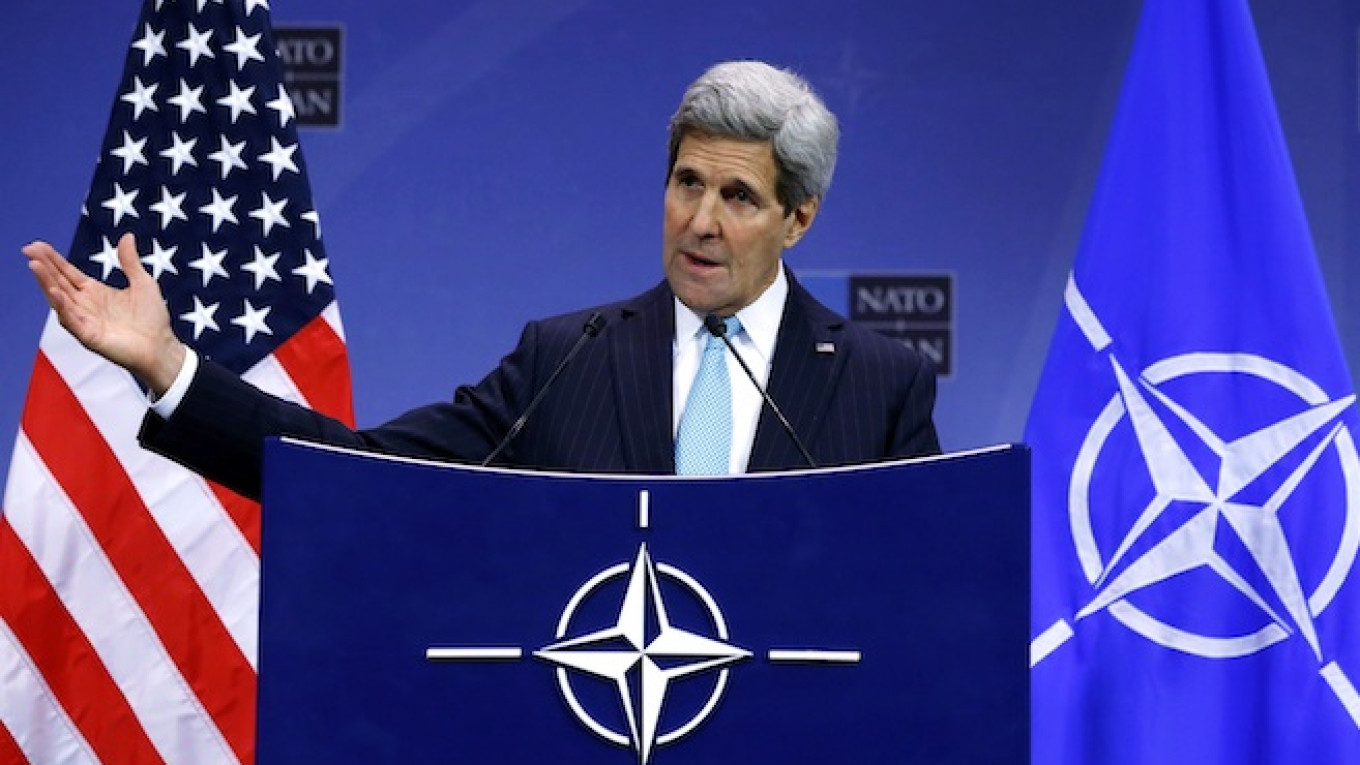BRUSSELS — U.S. and EU leaders were on Wednesday to pledge to work together on sanctions and on strengthening the energy security of Europe and Ukraine as they seek to present a united front to Russia, a draft document said.
U.S. Secretary of State John Kerry and Energy Secretary Ernest Moniz were in Brussels for talks after a year in which the United States has led the push for tougher sanctions, while some governments in Europe, afraid economic measures against Russia will hurt them as much as they hurt Moscow, have been more cautious.
The draft statement said the crisis between Russia and Ukraine that erupted with Moscow's annexation of Crimea in March can be cooled, as was shown by a tentative October agreement brokered by the EU on gas pricing to ward off a supply crisis over the peak winter months.
Moscow cut off Kiev's gas in June in a row over unpaid bills and the price Gazprom charges Ukraine.
So far the United States has been cautious about allowing gas exports as U.S. politicians worry they could drive up domestic prices, while business seeks to sell to the highest bidder, typically Asia rather than Europe.
But the draft on Wednesday welcomed the prospect of U.S. liquefied natural gas exports to Europe to diversify supplies and further talks on a transatlantic trade deal. It also backed EU and Ukrainian plans for energy reforms.
The European Union is seeking to complete its single energy market, building extra links to share available supplies. Ukraine wants improved infrastructure and connections with the EU network and to end years of energy waste as it moves away from subsidized prices.
The EU and the United States stood shoulder-to-shoulder in their support for Ukraine's new government and underlined the necessity of continuing reforms in Ukraine's energy sector, the statement said.
The U.S. and EU also said they backed a "robust and dynamic" accord at next year's United Nations climate conference in Paris and urged other governments to match the emissions reductions promises Washington and EU governments have made.
A Message from The Moscow Times:
Dear readers,
We are facing unprecedented challenges. Russia's Prosecutor General's Office has designated The Moscow Times as an "undesirable" organization, criminalizing our work and putting our staff at risk of prosecution. This follows our earlier unjust labeling as a "foreign agent."
These actions are direct attempts to silence independent journalism in Russia. The authorities claim our work "discredits the decisions of the Russian leadership." We see things differently: we strive to provide accurate, unbiased reporting on Russia.
We, the journalists of The Moscow Times, refuse to be silenced. But to continue our work, we need your help.
Your support, no matter how small, makes a world of difference. If you can, please support us monthly starting from just $2. It's quick to set up, and every contribution makes a significant impact.
By supporting The Moscow Times, you're defending open, independent journalism in the face of repression. Thank you for standing with us.
Remind me later.


